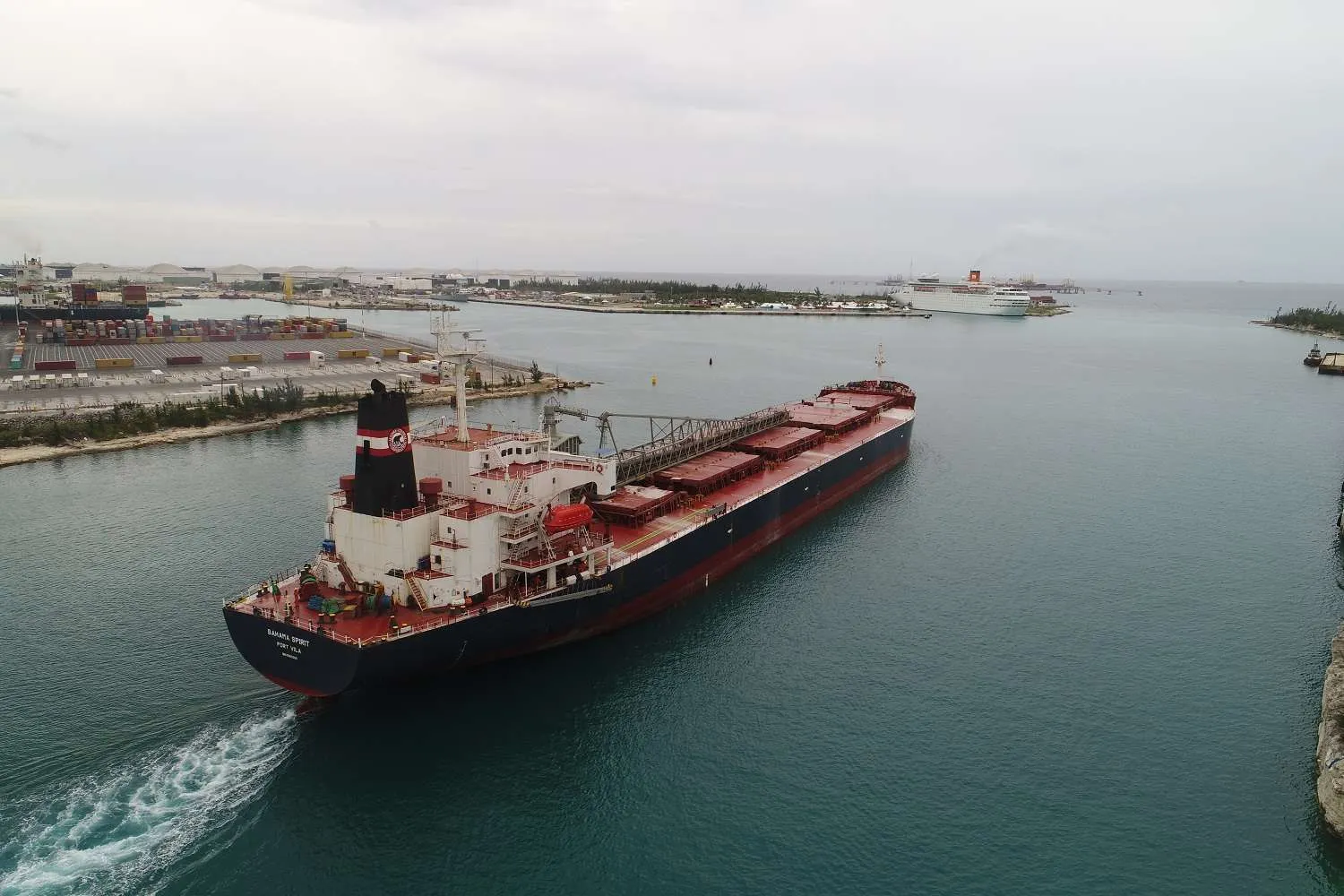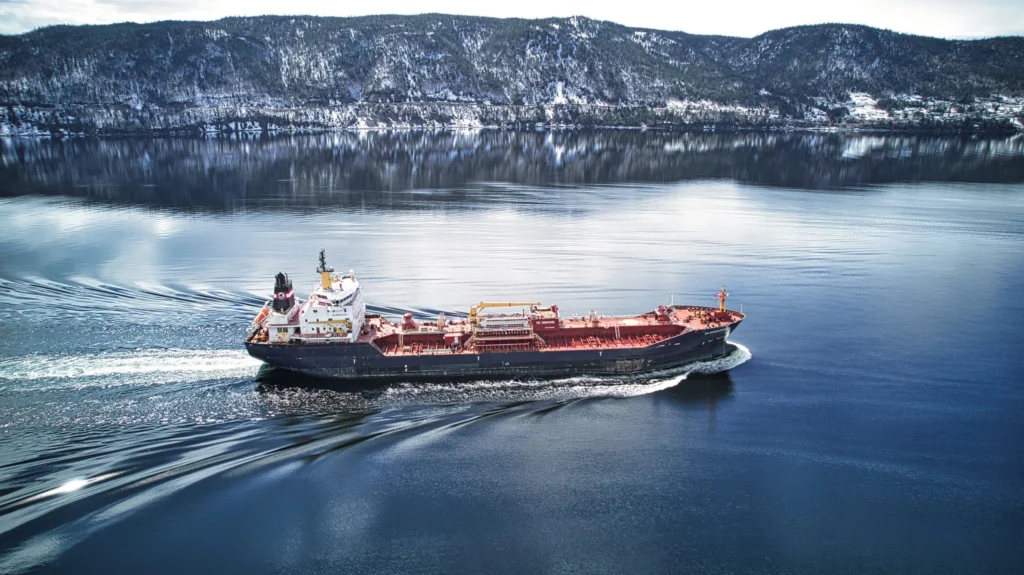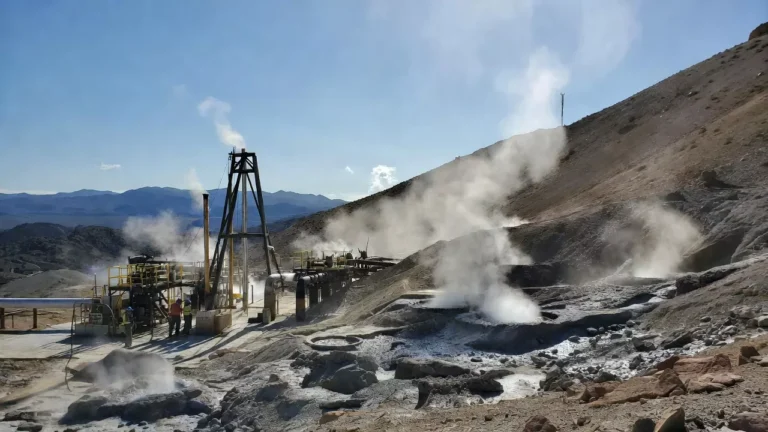
Algoma Central Corporation and Irving Oil Celebrate Arrival of New Tanker Vessel to Strengthen Energy Supply Network
On a bright day in Saint John Harbour, two major players in the Canadian marine transport and energy sectors—Algoma Central Corporation and Irving Oil—welcomed the first of two brand-new product tankers that will bolster regional fuel distribution capabilities. This milestone marks a significant expansion in marine shipping operations designed to enhance the supply chain for petroleum products in Eastern Canada and along the U.S. East Coast.
The newly arrived vessel, named the Algoma East Coast, is the first of two 37,000-deadweight-tonne (DWT) ice-class product tankers built to meet the stringent demands of Canadian marine transport and energy logistics. Its sister vessel, the Algoma Acadian, is expected to arrive later in the spring. Both ships were constructed at the Hyundai Mipo Dockyard in South Korea, one of the world’s most renowned shipbuilders, and represent a total capital investment of $127 million. This substantial financial commitment was made jointly by Algoma Central Corporation and Irving Oil as part of a long-term strategic partnership.
Serving Canada’s Largest Refinery and Beyond
The Algoma East Coast and Algoma Acadian are not just new additions to Algoma’s product tanker fleet—they symbolize a major enhancement of Irving Oil’s operational infrastructure. These tankers will operate under the Canadian flag and be deployed immediately into service, transporting refined petroleum products from Irving Oil’s refinery in Saint John, New Brunswick—Canada’s largest oil refinery.
With a refining capacity of over 320,000 barrels per day, the Saint John facility plays a critical role in fueling homes, businesses, and transport systems throughout Atlantic Canada and the northeastern United States. The two new tankers will ensure a more efficient and reliable maritime logistics network, transporting gasoline, diesel, jet fuel, and other petroleum products to key ports in the region.
A Strategic Partnership for Resilience and Growth
The arrival of the Algoma East Coast was celebrated by both companies as a forward-looking investment in energy reliability and national infrastructure. Gregg Ruhl, President and CEO of Algoma Central Corporation, emphasized the significance of the new tankers to the company’s evolving marine strategy.
“Algoma is excited to welcome the Algoma East Coast, and soon, the Algoma Acadian, to our product tanker fleet,” said Ruhl. “These additions represent more than just new vessels—they introduce a new asset class to our operations, offering greater flexibility and range to serve existing and new markets. This expansion reinforces Algoma’s leadership in Canadian marine shipping and supports our commitment to innovative fleet development.”
Ruhl also noted the strong collaboration with Irving Oil and the dedication of Algoma’s technical and operational teams who brought this complex project to life. “This milestone in our newbuild journey has been incredible to witness, and we are deeply grateful for the teamwork that made it possible. Both vessels will be deployed immediately upon arrival in Saint John, ensuring a seamless integration into Irving’s fuel supply chain.”
Commitment to Energy Security and Environmental Readiness
Jeff Matthews, President and CEO of Irving Oil, echoed the sentiment, underlining the broader implications of the investment for energy security and customer service.

“This investment underscores our company’s commitment to providing energy security in the regions where we operate,” said Matthews. “We remain focused on delivering a reliable, safe, and sustainable supply of energy products to our customers today, while positioning ourselves to meet tomorrow’s challenges.”
Matthews emphasized that the partnership with Algoma and the addition of these state-of-the-art vessels reflect Irving Oil’s strategy to modernize its supply chain while preparing for a lower-carbon future. “By investing in next-generation shipping technologies and infrastructure, we are taking concrete steps to improve efficiency, reduce emissions, and ensure resilience in our operations.”
Advanced Vessel Capabilities
The Algoma East Coast and Algoma Acadian were built to meet some of the most stringent marine environmental and operational standards. With an ice-class hull, each vessel is designed to navigate challenging winter conditions typical of Canadian waters, including the Bay of Fundy. This extends the ships’ usability year-round, minimizing downtime due to weather and ice.
Each vessel boasts a cargo capacity of approximately 260,000 to 265,000 barrels and is equipped to carry multiple grades of petroleum products including gasoline, diesel, and jet fuel. Their design supports flexible routing options and optimized cargo handling, making them versatile assets in a rapidly evolving energy landscape.
Technical Features at a Glance:
- Deadweight Tonnage (DWT): 37,000 tons
- Beam Width: 27.4 meters, offering stability and ample deck space
- Ice-Class Hull: Designed for operations in icy waters, ensuring year-round reliability
- Cold Ironing Ready: Equipped with high-voltage shore power systems (ABS Notation HVSC-Ready), allowing the vessels to connect to shore-side electricity while docked. This minimizes emissions during port stays and supports compliance with environmental regulations.
- Methanol Fuel Ready: The vessels are future-proofed for alternative fuels, with American Bureau of Shipping (ABS) notations indicating readiness for methanol fuel adoption:
- Methanol Fuel Ready Level 3(S)
- Methanol Fuel Ready Level 2D (TA, ME)
- Enhanced Ballasting Capabilities: Tailored for optimized performance in high-tide zones like the Bay of Fundy
These innovations not only improve operational efficiency but also align with international efforts to decarbonize the maritime sector. By investing in dual-fuel readiness and high-efficiency energy systems, both Algoma and Irving are advancing their environmental stewardship and preparing for regulatory changes ahead.
Economic and Regional Impact
Beyond corporate strategy and technical advancement, the arrival of the Algoma East Coast has broader implications for the economy of Atlantic Canada. The vessels will help secure hundreds of regional jobs by supporting the continuous operation of the Saint John refinery and associated logistics networks, including port services, supply chain contractors, and maritime crew employment under Canadian flag requirements.
Furthermore, the commitment to operating under the Canadian flag ensures the vessels comply with the Canada Shipping Act and are crewed by Canadian mariners, strengthening domestic maritime expertise and supporting the country’s blue economy.
As global energy markets transition, the addition of the Algoma East Coast and the forthcoming Algoma Acadian signals a proactive and strategic approach to long-term energy logistics. The vessels are designed to operate efficiently in the current petroleum market while being adaptable to future fuels and technologies, ensuring longevity in a dynamic regulatory and commercial environment.
The joint investment by Algoma Central Corporation and Irving Oil represents a shared vision for resilience, adaptability, and sustainability in marine energy distribution. By building a more robust and environmentally ready tanker fleet, these two Canadian companies are not only securing their operational futures but also contributing meaningfully to national energy security and environmental goals.
As the Algoma East Coast begins its voyages along Canada’s eastern coastline and into U.S. waters, it marks not just the movement of fuel, but the movement of an industry toward innovation, collaboration, and a cleaner energy future.










